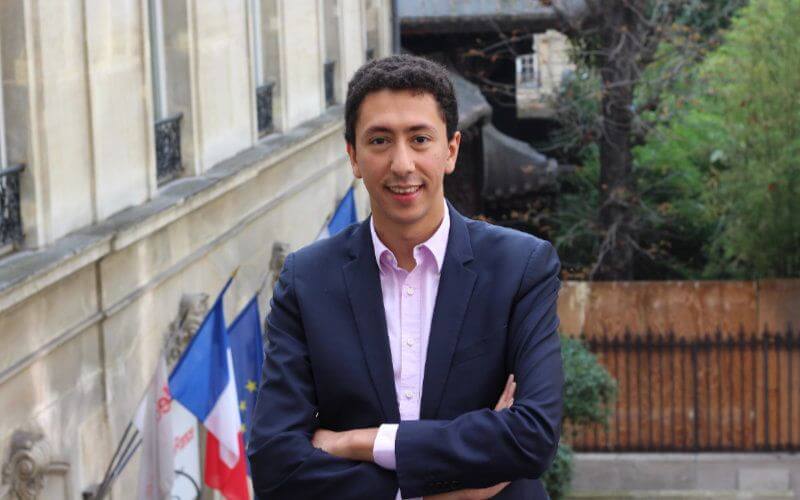French Politician Othman Nasrou Challenges Immigration Debate Stereotypes

The debate on immigration is far from over in France. After the speech by Emmanuel Macron on Monday, September 16, there will be a major debate in Parliament on France’s immigration policy during the same month. If the issue raises so many questions that have not yet found answers, it divides the French and leaves the country deeply fractured. This is what Othman Nasrou tries to relate in one of his columns.
The issue of immigration concerns Othman Nasrou, a French citizen of Moroccan origin, on many levels. All the more so as he is a young figure in the French political sphere.
President of the Les Républicains (LR) and Independents Group in the Île-de-France region, Nasrou is a candidate in the municipal elections in Trappes (Yvelines).
According to him, if the public debate is going in circles, it is because the far left and the far right have succeeded in polarizing public opinion by imposing their postulates, with the common idea that immigrants are a homogeneous category of the population.
"In our country, the far left has reduced the immigrant to a figure of a victim to be defended and protected at all costs, even against himself. The vision carried by the far right has made the character a profiteer of the system.
In both cases, there is an essentialization against which I strongly protest," says Nasrou in a column published in L’Opinion.
Indeed, he thinks it is urgent to put an end to stereotypes and to protest against the idea that being an immigrant is enough to define an individual, positively or negatively.
"I have always refused this assignment to an identity residence. I am an immigrant, but I am neither a victim nor a profiteer," he insists.
Born in Morocco, Nasrou was raised with a great idea of France, its literature and its universalist ideas. Arrived in France at the age of 17 to pursue his higher education, he admits to having done his entire academic career believing deeply in French meritocracy.
"I worked hard to pass the selective exams that I am not ashamed to have succeeded in. I was able to take on important responsibilities as a student and as an entrepreneur. I did not want to be content to live in France: I made the conscious and voluntary choice to become French," he boasts.
Returning to the public debate, Nasrou says he is speaking out today because the prevailing discourse seems to obscure the fact that being of immigrant origin is not enough to define oneself.
At 32 years old, the young politician thinks that if France were as "fundamentally racist" as some want to make it out to be, he would not have been able to have this career.
"I got involved in politics to give back to my adopted country what it had given me. I do not deny my origins of which I am proud, but I am building a path that is my own, and that France allows me to draw," says Nasrou, who says he is always grateful to France.
Related Articles
-

Interpol Manhunt: Moroccan Fugitive Sought for Brazen Daylight Murder in France
2 August 2025
-

Moroccan Vacation Trap: French Tourists Risk Hefty Fines for Counterfeit Souvenirs
1 August 2025
-

Shock and Grief: Koh-Lanta Pioneer Stéphane Bertheau Dies at 48, TV World Mourns
1 August 2025
-

French Mosque Under Fire for Hosting Radical Islamic Publisher
1 August 2025
-

Algerian Woman Battles French Bureaucracy: Court Orders Prefecture to Process Stalled Residence Permit
1 August 2025